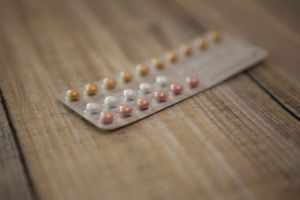News
Science and Nature News in Brief: Birth control pills increase breast cancer risk
This article is more than 8 years old.
Elsewhere, Antabuse could fight cancer and a new generation of 3D printing has benefits

A link to breast cancer and depression? (photo: Pixabay)
According to new Danish research, the longer a woman has used birth control pills, the greater the risk she has of developing breast cancer.
The research, carried out by the city hospital Rigshospitalet, showed that women aged 15-49 who consumed birth control pills or used hormonal contraception were, on average, 20 percent more susceptible to getting breast cancer than women who didn’t take any pills.
The results were published recently in the prestigious scientific journal, New England Journal of Medicine.
“It’s the first time that we have a study of this size that has documented the risk of breast cancer compared to how long the woman has used the contraception,” Øjvind Lidegaard, a professor at Rigshospitalet and senior author of the research, told Politiken newspaper.
READ MORE: Taking ‘the pill’ increases risk of suicide, new research shows
Time factor
The research showed that 68 out of 100,000 women aged 15-49 who used hormonal contraception got breast cancer over the course of a year – compared to just 55 out of 100,000 women who didn’t use hormonal contraception.
The study also showed that the risk of getting breast cancer increased the longer the woman used a hormonal contraception product. After the first year, the risk was at 9 percent, but after a decade the risk had grown to 38 percent.
The news comes hot on the heels of a recent Danish study that showed that all forms of hormonal contraception lead to markedly more suicides and suicide attempts. Lidegaard was behind those findings as well.
Earlier this year it emerged that Danish women rank first among the Nordic countries in use of medically prescribed contraceptives.
Antabuse has cancer fighting capacity
Danish research has shown that the intake of alcohol prevention product Antabuse reduces the risk of dying of cancer. The research is based on 3,000 Danes aged 35-85 who got their first cancer diagnosis between 2000-2013 and researchers discovered a lower mortality rate among patients who continued to use Antabuse after their diagnosis than those who didn’t.
New metal 3D print doesn’t need treatment
Researchers from the Technical University of Denmark (DTU) have teamed up with three Danish companies to produce a metal 3D print that doesn’t need any post production treatment. Usually, metal 3D printing requires considerable finishing treatment because the prints have a very rough surface, but the Danes have now developed a more affordable method that leaves smoother surfaces that don’t need as much work afterwards.
Bears put down in Danish zoo
Aalborg Zoo has decided to euthanise two older brown bears in recognition of the fact that its bear enclosure was no longer up to contemporary humane standards. The two bears, aged 20 and 21, were euthanised because they couldn’t be shipped off to other zoos due to their advanced ages.










































